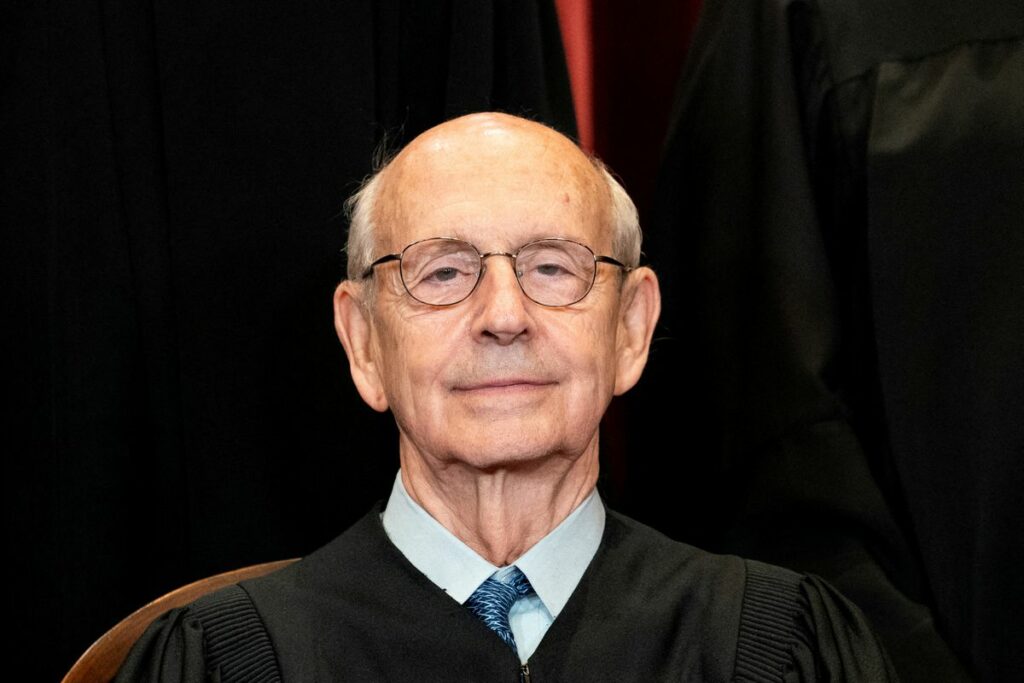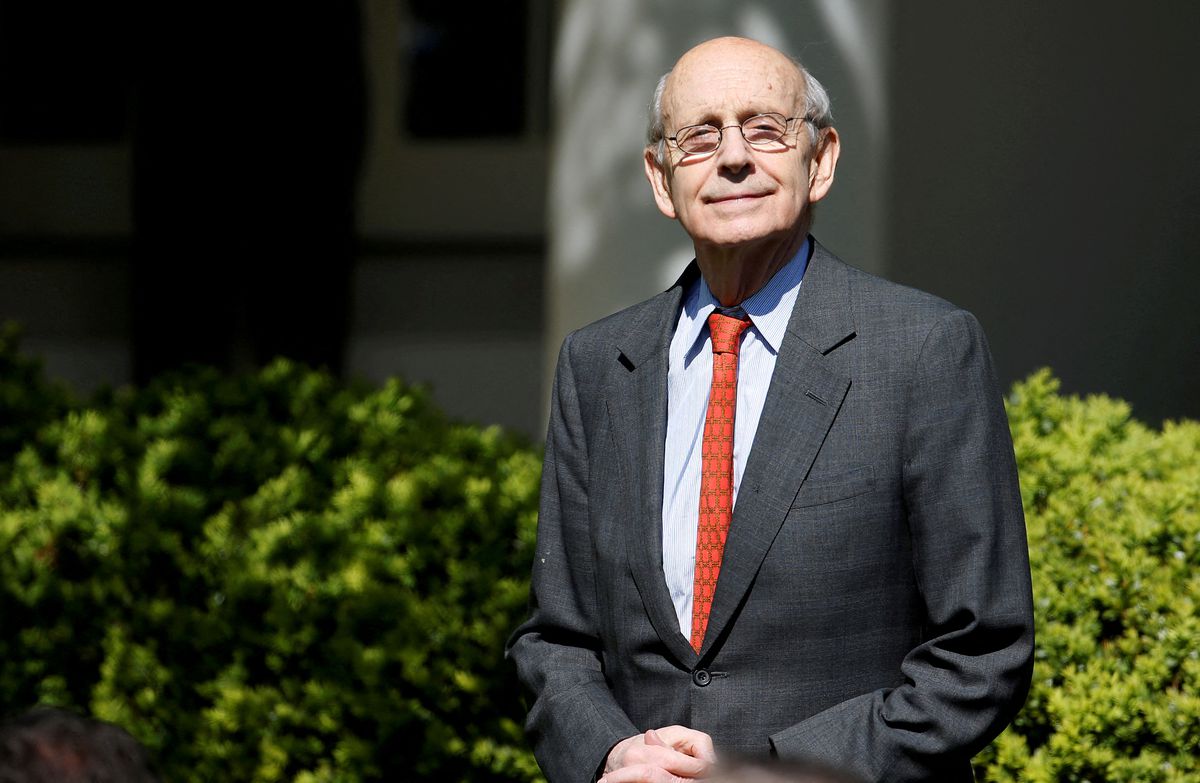Liberal Justice Stephen Breyer, at 83 the oldest member of the U.S. Supreme Court, will retire at the end of the court’s current term that runs through the end of June, NBC News and CNN reported on Wednesday, giving President Joe Biden the opportunity to appoint a successor who could serve for decades.
Breyer authored important rulings upholding abortion rights and healthcare access, helped advance LGBT rights and questioned the constitutionality of the death penalty but often found himself in dissent on a court that has moved rightward and currently has a 6-3 conservative majority.
He was appointed to the Supreme Court by Democratic President Bill Clinton in 1994. Only conservative Justice Clarence Thomas, one of two Black men ever on the high court, has served longer among the current justices, joining it in 1991.

Biden during the 2020 presidential election campaign pledged to nominate a Black woman to fill any Supreme Court vacancy, which would be a historic first. Biden’s fellow Democrats hold a razor-thin majority in the U.S. Senate, which under the U.S. Constitution gets to confirm Supreme Court nominees.
Potential Biden nominees include Ketanji Brown Jackson, a former Breyer law clerk who was confirmed by the Senate last June to serve on an influential U.S. appellate court, and Leondra Kruger, who serves on the California Supreme Court.
Thurgood Marshall is the only other Black justice in U.S. history, having served from 1967 to 1991.
A Biden appointee would not change the court’s ideological balance, but would enable him to refresh its liberal wing with a much younger jurist in the lifetime post.
Biden’s Republican predecessor Donald Trump appointed three justices during his four years in office, all of whom were young enough to serve for decades. The Senate, then under Republican control, confirmed Trump’s appointment of conservative Justice Amy Coney Barrett in 2020 after the death of liberal Justice Ruth Bader Ginsburg.
After Biden defeated Trump in the 2020 election, some liberal activists urged Breyer to step aside while Democrats control the Senate, concerned that if he does not do so, Republicans could block confirmation of his successor in the chamber or a future Republican president could be able to name his replacement and tilt the court even further to the right.
The Senate is split 50-50, with Democrats in control because Vice President Kamala Harris can cast a tie-breaking vote. Confirmation of a justice requires a simple majority vote rather than a previous 60-vote threshold under a change made by Senate Republicans in 2017 when they controlled the chamber and faced Democratic opposition to Trump’s first Supreme Court nominee.
Liberal activists are eager to avoid a repeat of what happened when Trump was able to replace Ginsburg, expanding the court’s conservative majority.
The court’s current nine-month term began in October. It has been marked by an increasing assertiveness of its conservative majority. The court already is due to issue rulings by the end of June in cases giving the conservative justices a chance to curtail abortion rights and widen gun rights. The justices this week took up a case to be decided in their next term that could doom university policies considering race as a factor in student admissions and cripple affirmative action policies long despised by the American right.
On the court’s liberal wing, Breyer was considered a moderate with who sought consensus when possible.
Breyer last year authored a ruling rejecting a Republican bid to invalidate Obamacare, preserving the landmark healthcare law formally called the Affordable Care Act for the third time since its 2010 enactment. He also wrote a ruling last year in a major free speech case that sided with a cheerleader who had been punished by her high school for a profanity-laced social media post.
Breyer authored two important abortion rulings in 2016 and 2020 that struck down restrictions on clinics in Texas and Louisiana. He also was in the majority in the landmark ruling in 2015 that legalized gay marriage.
Breyer in recent years emerged as a persistent critic of the death penalty and wrote that it was “highly likely” that capital punishment violates the Constitution’s Eighth Amendment prohibition on cruel and unusual punishment. He noted that innocent people have been executed, that capital punishment has been marred by racial discrimination and politics and that death sentences have been imposed arbitrarily.
He previously served for 14 years as an appeals court judge on the Boston-based 1st U.S. Circuit Court of Appeals after having been appointed to that post by Democratic President Jimmy Carter in 1980. Breyer also had stints as a professor at Harvard Law School and as a staffer on Capitol Hill and in the Justice Department.
The court’s other two liberal justices are Sonia Sotomayor and Elena Kagan.
Reporting by Lawrence Hurley in Washington, Andrew Chung in New York, and Kanishka Singh in Bengaluru; Editing by Will Dunham and Susan Heavey
